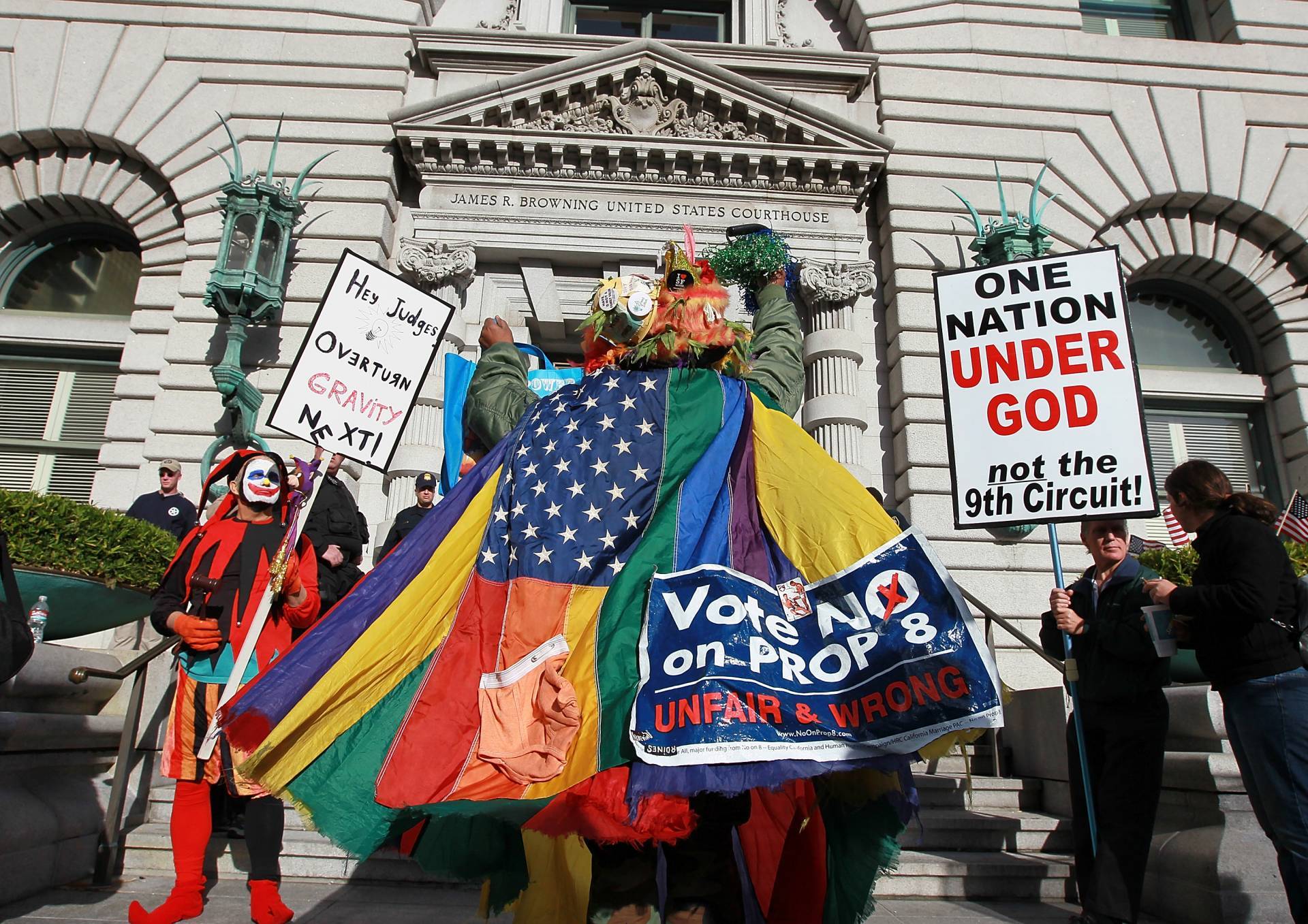KQED today filed a motion in the United States District Court of Northern California requesting that videotapes from the 2010 trial over the constitutionality of California's ban on same-sex marriage be released to the public.
As the San Francisco trial began in January 2010, Judge Vaughn Walker was set to broadcast the entire trial via closed circuit. But supporters of Proposition 8 objected, taking the matter up to the U.S. Supreme Court, which ruled 5-4 that trial should not be broadcast. However, the proceedings were still recorded and kept under seal.
Later that year Judge Walker issued a decision striking down Proposition 8 as a violation of the U.S. Constitution's guarantees of equal protection and due process. It was the nation's first court decision overturning a same sex marriage ban on federal constitution grounds. Walker's decision was later upheld by the 9th Circuit Court of Appeals. The U.S. Supreme Court let the trial court decision stand, saying the backers of Proposition 8 lacked legal standing to challenge it.
Today's motion, which is supported by the two same-sex couples that challenged Proposition 8 in federal court as well as the National Center for Lesbian Rights and other LGBT groups, asserts that there is no longer a compelling reason to prevent people from seeing the tapes.
"Unsealing is appropriate because so much has changed since the Ninth Circuit ordered that the tapes remain sealed over five years ago," KQED attorney Thomas R. Burke wrote in the motion.
